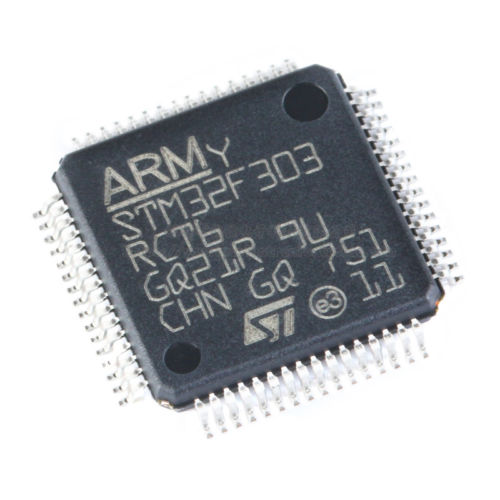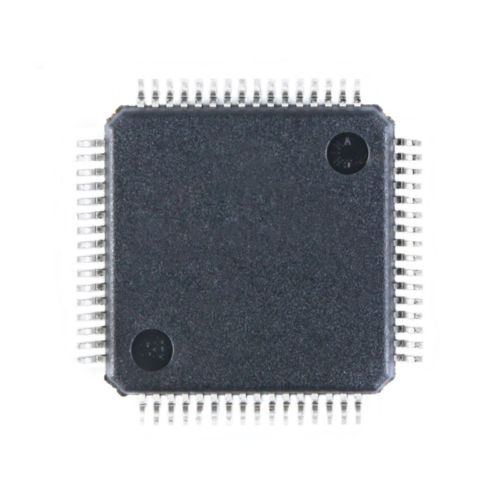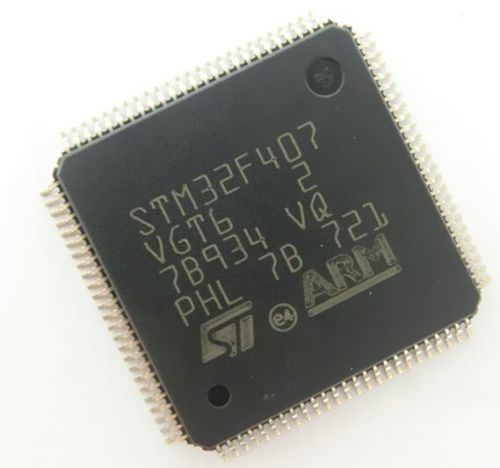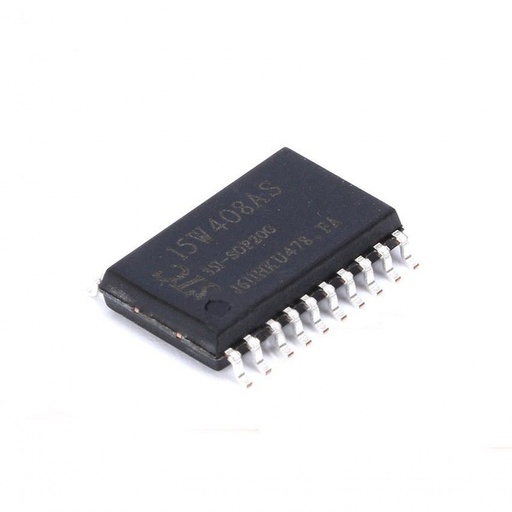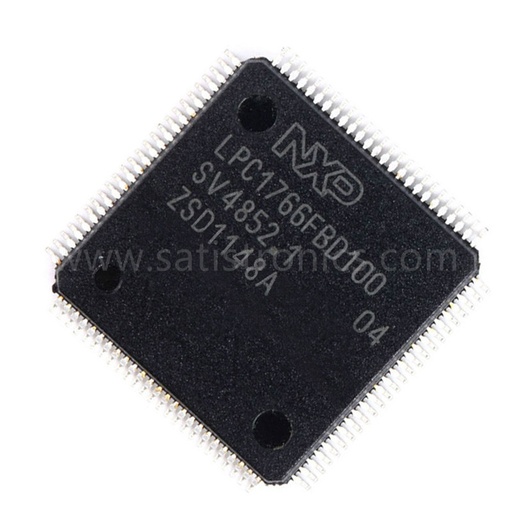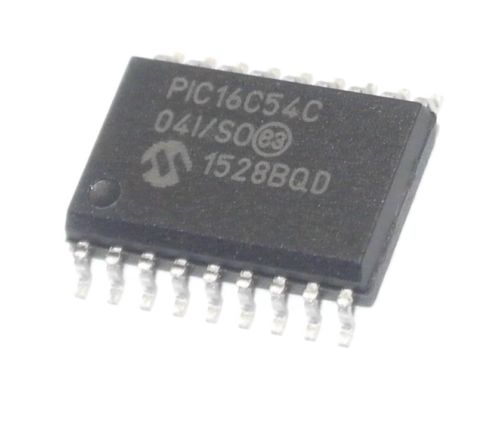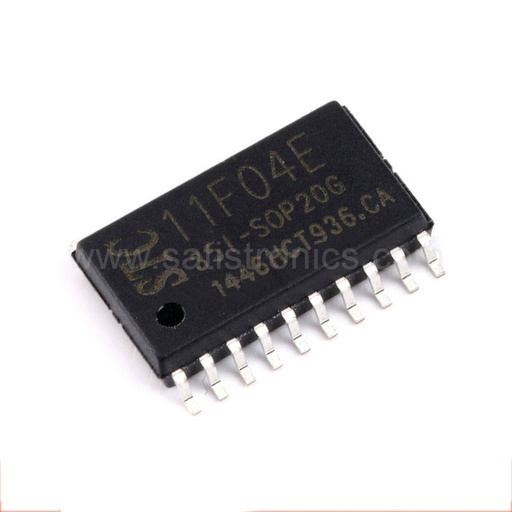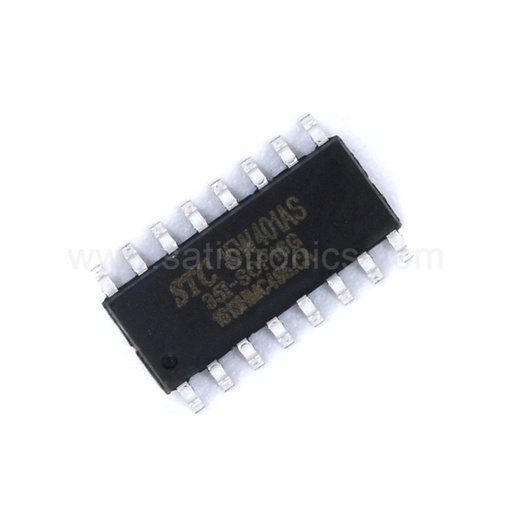ST Chip STM32F303RCT6 LQFP64 72MHz 256KB 32-bit Microcontroller
Categories :
Processor | MicrocontrollerSKU :
181333The STM32F303xB/STM32F303xC family is based on the high-performance ARM®Cortex®-M4 32-bit RISC core with FPU operating at a frequency of up to 72 MHz, and embedding a floating point unit (FPU), a memory protection unit (MPU) and an embedded trace macrocell (ETM). The family incorporates high-speed embedded memories (up to 256 Kbytes of Flash memory, up to 40 Kbytes of SRAM) and an extensive range of enhanced I/Os and peripherals connected to two APB buses.
The devices offer up to four fast 12-bit ADCs (5 Msps), seven comparators, four operational amplifiers, up to two DAC channels, a low-power RTC, up to five general-purpose 16-bit timers, one general-purpose 32-bit timer, and two timers dedicated to motor control. They also feature standard and advanced communication interfaces: up to two I2Cs, up to three SPIs (two SPIs are with multiplexed full-duplex I2Ss), three USARTs, up to two UARTs, CAN and USB. To achieve audio class accuracy, the I2S peripherals can be clocked via an external PLL.
The STM32F303xB/STM32F303xC family operates in the -40 to +85 °C and -40 to +105 °C temperature ranges from a 2.0 to 3.6 V power supply. A comprehensive set of power-saving mode allows the design of low-power applications.
The STM32F303xB/STM32F303xC family offers devices in three packages ranging from 48 pins to 100 pins.
The set of included peripherals changes with the device chosen.
Parameters:- Core: ARM® Cortex® -M4 32-bit CPU with FPU (72 MHz max), single-cycle multiplication and HW division, 90 DMIPS (from CCM), DSP instruction and MPU (memory protection unit)
- Operating conditions:
- VDD , VDDA voltage range: 2.0 V to 3.6 V
- Memories
- 128 to 256 Kbytes of Flash memory
- Up to 40 Kbytes of SRAM, with HW parity check implemented on the first 16 Kbytes.
- Routine booster: 8 Kbytes of SRAM on instruction and data bus, with HW parity check (CCM)
- CRC calculation unit
- Reset and supply management
- Power-on/Power-down reset (POR/PDR)
- Programmable voltage detector (PVD)
- Low-power modes: Sleep, Stop and Standby
- VBAT supply for RTC and backup registers
- Clock management
- 4 to 32 MHz crystal oscillator
- 32 kHz oscillator for RTC with calibration
- Internal 8 MHz RC with x 16 PLL option
- Internal 40 kHz oscillator
- Up to 87 fast I/Os
- All mappable on external interrupt vectors
- Several 5 V-tolerant
- Interconnect matrix
- 12-channel DMA controller
- Four ADCs 0.20 μS (up to 39 channels) with selectable resolution of 12/10/8/6 bits, 0 to 3.6 V conversion range, single ended/differential input, separate analog supply from 2 to 3.6 V
- Two 12-bit DAC channels with analog supply from 2.4 to 3.6 V
- Seven fast rail-to-rail analog comparators with analog supply from 2 to 3.6 V
- Four operational amplifiers that can be used in PGA mode, all terminals accessible with analog supply from 2.4 to 3.6 V
- Up to 24 capacitive sensing channels supporting touchkey, linear and rotary touch sensors
- Up to 13 timers
- One 32-bit timer and two 16-bit timers with up to 4 IC/OC/PWM or pulse counter and quadrature (incremental) encoder input
- Two 16-bit 6-channel advanced-control timers, with up to 6 PWM channels, deadtime generation and emergency stop
- One 16-bit timer with 2 IC/OCs, 1 OCN/PWM, deadtime generation and emergency stop
- Two 16-bit timers with IC/OC/OCN/PWM, deadtime generation and emergency stop
- Two watchdog timers (independent, window)
- SysTick timer: 24-bit downcounter
- Two 16-bit basic timers to drive the DAC
- Calendar RTC with Alarm, periodic wakeup from Stop/Standby
- Communication interfaces
- CAN interface (2.0B Active)
- Two I2 C Fast mode plus (1 Mbit/s) with 20 mA current sink, SMBus/PMBus, wakeup from STOP
- Up to five USART/UARTs (ISO 7816 interface, LIN, IrDA, modem control)
- Up to three SPIs, two with multiplexed half/full duplex I2S interface, 4 to 16 programmable bit frames
- USB 2.0 full speed interface
- Infrared transmitter
- Serial wire debug, Cortex® -M4 with FPU ETM, JTAG
- 96-bit unique ID

